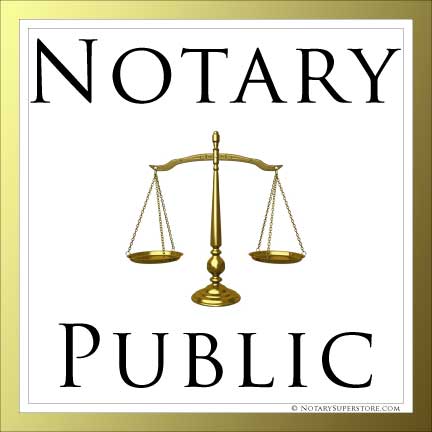Debunking Notarial Work: Streamlining the Role and Relevance of Notaries
In the detailed web of legal documents and confirmation, notaries stand as columns of assurance and authenticity. Their duty, commonly shrouded in enigma for lots of, brings significant weight in ensuring the credibility and integrity of critical records. As guardians of validity and reality, notaries play a pivotal part in our culture, yet their job is not always fully understood. By deciphering the intricacies bordering notarial techniques and losing light on the relevance of their acts, a clearer understanding emerges of the crucial role notaries play in upholding the textile of legal and legal arrangements.
The Background of Notarial Job
Exactly how did notarial job advance with time to become an important part of lawful and service deals? The background of notarial job days back to ancient human beings, where scribes played an important function in videotaping crucial details and verifying records. As cultures proceeded, the need for a more formalized system to make sure the legitimacy of contracts developed. This caused the development of notaries, individuals designated by the state to work as objective witnesses in legal issues.
During the Middle Ages, notaries obtained prominence in Europe, with their functions broadening to consist of preparing lawful records, accrediting trademarks, and preserving documents. The surge of worldwide profession even more highlighted the relevance of notarial job in verifying agreements and contracts across boundaries.
In the contemporary era, notaries proceed to play an important duty in lawful and service deals by confirming identifications, confirming the credibility of files, and protecting against scams. Their function in licensing the legitimacy of contracts includes a layer of security and trust to the ever-evolving landscape of commerce and regulation.

Responsibilities and Duties of Notaries
Notaries play a vital duty in validating the authenticity of documents and the identity of signatures. One of their key responsibilities is to witness the signing of vital records, such as wills, agreements, and acts, to make certain that all celebrations are entering right into contracts intentionally and voluntarily.
They license duplicates of original records, providing assurance to organizations that the duplicates are real replicas of the originals. On the whole, the obligations and obligations of notaries are necessary in protecting the honesty and legitimacy of different documents and purchases - Notary.
Notarial Certificates and Signatures
Exemplifying thorough attention to detail, notarial certificates and signatures act as necessary elements in verifying the credibility of lawful papers. Notarial certifications generally consist of critical information such as the date of notarization, the names of the notaries, a summary of the record, and the notary's main seal. These certifications offer a clear record of the notarial act, making sure that the document can be easily identified and mapped back to the notary that managed the process.
Signatures play a pivotal role in notarial work, as they represent the arrangement and consent of the celebrations involved. Notaries thoroughly witness the signing of files to verify the identity of the signatures and confirm that they are signing of their very own totally free will. By attaching their main seal and trademark to the document, notaries accredit that the needed treatments have been complied with and that the document is enforceable and legitimate.
Basically, notarial certificates and signatures are the characteristic of credibility in lawful transactions, giving guarantee to all parties entailed that the documents are legitimate and binding.
Significance of Notarial Acts

Registration Process Discussed
The notarization process normally starts with the private providing the file to a notary public. When the identity is validated, the notary guarantees that the individual signing the record does so willingly and without any kind of browbeating.
Verdict

Notarial certificates normally contain important information such as the day of notarization, the names of the signatories, a summary of the document, and the notary's main seal. These certificates provide a clear document of the notarial act, guaranteeing that the file can be quickly recognized and traced back to the notary check this that managed the procedure.
By affixing their official seal and signature to the record, notaries accredit that the required treatments have been adhered to and that the file is valid and enforceable.
By confirming the identification of the signatures, validating their readiness to get in into the arrangement, and certifying the day and place of the finalizing, notaries play a critical function in upholding the validity of lawful papers.After the file is check signed, the notary will certainly fasten their official seal or stamp onto the record.